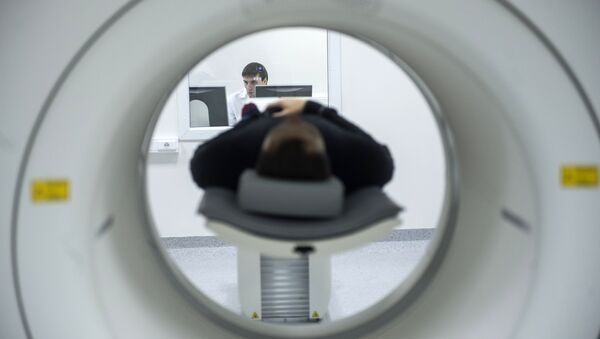US scientists have taken one step closer to unveiling the secrets of the mind; in order to accomplish their bold task they are using fMRI (functional magnetic resonance imaging) scans to trace blood-flow changes in the human brain and creating patterns of its neural activity.
"Researchers are using fMRI scans to watch how blood flows through active areas of the brain in real time. The scans can be used to produce "maps" of activity during a brain's thought processes, with the maps changing based on what a person is thinking," elaborates Karen Lazo, a multimedia intern at the US National Science Foundation (NSF) in her Op-Ed published by LiveScience.
The scientist elaborated that his lab is examining patterns of behavior related to decision making and self-control. Volunteers perform different tasks while being placed in an MRI scanner that tracks their real-time brain activity.
Some tasks are simple and aimed at studying acts of self-control. Other experiments include tasks when volunteers should make difficult decisions about "risk versus reward."
Altered fMRI response to emotional faces in offspring of people with bipolar disorder http://t.co/aXauwt4e2p pic.twitter.com/RleOycfNW2
— Brain (@Brain1878) 8 июля 2015
Curiously enough, in general people demonstrate similar patterns of brain activity while accomplishing these tasks. However, there are some cases when people's cognitive processes differ tremendously.
Understanding these individual differences in brain activity may help scientists to cope with various neurological and neurodevelopmental disorders, the researchers pointed out.
And that is not all. By studying the human brain and solving its mysteries scientists are moving closer to creating the most advanced artificial mind.
However, experts warn that the mind reading machine may one day turn into a privacy nightmare for humanity.





